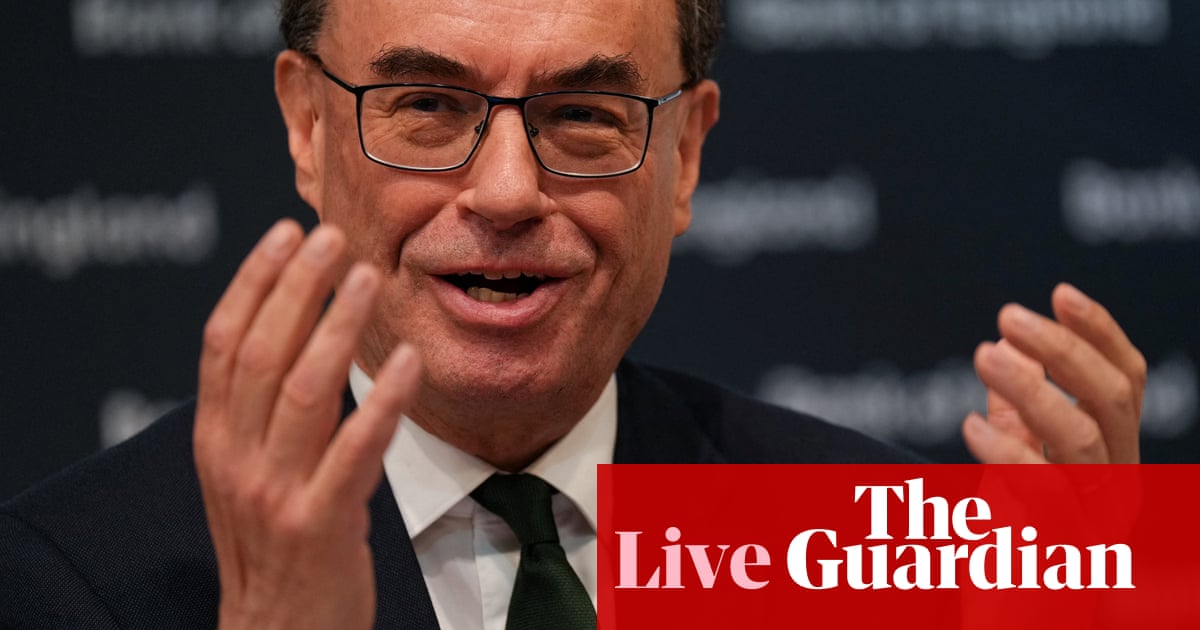The Bank of England will further delay capital rules meant to prevent another 2008-style crash, as it weighs the impact of Donald Trump’s return to the White House and the chancellor Rachel Reeves’s call for regulators to help drive UK growth.
The Bank’s regulatory arm said it was delaying the date by which banks had to implement Basel 3.1 rules by a year, to January 2027.
The Bank’s regulator, the Prudential Regulation Authority (PRA), said it made the decision after consulting with the Treasury, and that it had taken “competitive and growth considerations” into account.
It marks the second delay by the central bank, which is buying time to see how far the Trump administration will go in watering down regulations. EU officials are considering their response to capital rules in light of the UK announcement.
Trump, who will be sworn in on 20 January, has promised to slash 10 regulations for every new one added. The delayed Basel 3.1 rules – which are meant to ensure banks around the world hold enough capital to absorb potential losses and avoid another global financial crisis – are widely expected to be part of the cull.
US officials who had been advocating for stronger capital rules – including the Federal Reserve vice-chair, Mike Barr – have also resigned before Trump’s inauguration, making it more likely that there will be a bonfire of regulation under their pro-Trump successors.
Meanwhile, City regulators are under pressure to support UK growth by easing rules on the financial services sector. That includes rules introduced in the wake of the 2007-08 financial crash that Reeves said in November had “gone too far”.
The PRA said: “Given the current uncertainty around the timing of implementation of the Basel 3.1 standards in the US, and taking into account competitiveness and growth considerations, the PRA, having consulted with HM Treasury, has decided to further delay implementation of the rules.”
EU officials are also considering their options, but said it was in “everyone’s interest” to implement the reforms fully and on time. “(The EU) is now considering which steps to take on this in light of developments in other jurisdictions, including the US and the UK,” Olof Gill, a spokesperson for financial services for the European Commission, told Reuters.
The PRA said while it expected the implementation date to be in 2027 it would continue to monitor developments. The financial watchdog had previously delayed their introduction last September by six months, to January 2026.
The move is likely to rekindle concerns that the UK is willing to water down rules that would help avoid another financial crisis.
A spokesperson for the PRA pointed to comments by its chief executive, Sam Woods, who insisted last week that he did not want to see a regulatory “race to the bottom”. However, Woods told the House of Lords financial services regulation committee that it was right for the UK to be rowing back on post-financial crisis rules that appeared to have been “overcooked”.
after newsletter promotion
The PRA and the fellow City watchdog the Financial Conduct Authority are due to meet the chancellor in the coming weeks to discuss how they are meeting objectives to support growth and competitiveness, which were introduced by the former Conservative government.
Mortgage rules could reportedly be eased as a result of ministerial pressure. That could include rules that limit how much first-time buyers can borrow, the Times reported. The limit on contactless card spending, which sits at £100, could also be increased.
The FCA did not immediately respond to requests to comment, but published a letter from its chief executive, Nikhil Rathi, who said the regulator would start “opening a discussion on the balance between access to lending and levels of defaults”.
The City supervisors were among 17 UK regulators that received letters from Reeves and the prime minister, Keir Starmer, on Christmas Eve, ordering them to put forward pro-growth proposals. Ministers are summoning regulators to Downing Street for check-ins, in order to review their proposed plans and progress.
The first of those meetings was held on Thursday with the chief executives of regulators including the Competition and Markets Authority, the water regulator Ofwat and the energy regulator Ofgem.

.png) 3 months ago
37
3 months ago
37













































